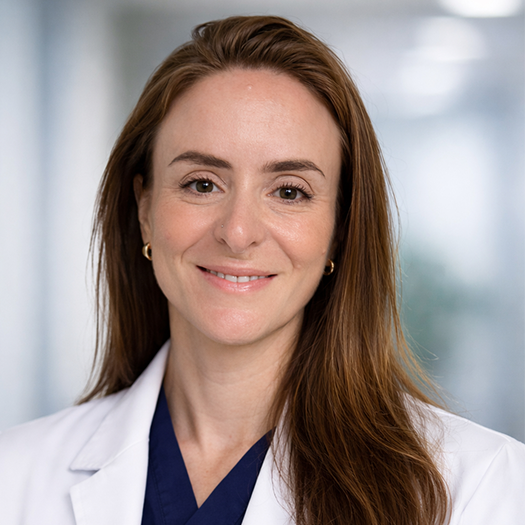
Briony Varda, MD, MPH
- Assistant Professor, Urology and Pediatrics
- Co-Director, Spina Bifida Program
- Director of Research, Divisions of Urology and Colorectal Surgery and Pelvic Reconstruction

Briony K. Varda, MD, MPH, is an attending urologist in the Division of Urology at Children’s National Hospital and an assistant professor of urology at George Washington School of Medicine and Health Sciences. She is co-director of the Children’s National Spina Bifida program and a urologist in the Division of Colorectal and Pelvic Reconstruction. Her clinical practice focuses on the clinical and surgical care of children with complex congenital genitourinary anomalies affecting the urinary tract. She is fellowship trained in pediatric urology in both open and robotic techniques for reconstructive surgery.
Dr. Varda completed her residency in the Harvard-Longwood Program in Urology and her fellowship at Boston Children’s Hospital. During this time, she completed a health services research fellowship program and her master’s degree in public health at the Harvard TH Chan School of Public Health. After fellowship, she spent additional time at Boston Children’s Hospital training in the clinical and surgical management of children with bladder exstrophy and cloacal exstrophy.
Dr. Varda is director of research for the Division of Urology and the Division of Colorectal Surgery and Pelvic Reconstruction. In this role, she leads a multidisciplinary clinical research group called ‘the ColLABoration’, which includes trainees, physicians, clinical providers and research personnel from both the urology and colorectal divisions. The focus of this research group is to investigate clinical outcomes among children with urology and colorectal conditions with attention to social determinants of health, while helping trainings expand their research skillset. Dr. Varda’s personal research focuses on “low value health care utilization” among children with complex genitourinary conditions, which includes investigating the frequency and causes of unplanned healthcare use, missed care opportunities and over-testing / over-treatment. She also maintains the largest prospective database in the U.S. for patients born with cloacal anomalies.
In her career to date, she has authored numerous journal articles and chapters on a variety of topics related to health service research and clinical outcomes.